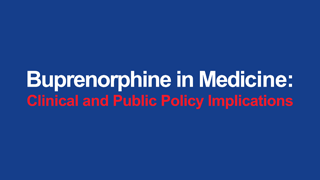Perioperative substance use disorder, opioid diversion, and opioid misuse by a medical professional undergoing orthopedic surgery
DOI:
https://doi.org/10.5055/jom.2014.0240Keywords:
substance use disorder, pain management, opioid diversion, opioid misuseAbstract
Patients with substance use disorders can present challenges for effective perioperative pain management. Healthcare professionals with substance abuse disorders requiring medical treatment and pain management represent a unique subpopulation. The authors present a case of a nurse undergoing an orthopedic surgical procedure who was found with two large, organized tackle boxes of opioid medication in her hospital room. Although the incidence of substance use disorders in healthcare professionals is thought to be equivalent to the general population, the presentation, substances of choice, and inciting factors are unique. Further, treatment options available to such individuals have been established and proven successful.
References
Hughes PH, Brandenburg N, Baldwin DC Jr, et al.: Prevalence of substance use among US physicians. JAMA. 1992; 267: 2333-2339. DOI: https://doi.org/10.1001/jama.267.17.2333
Dunn D: Substance abuse among nurses—Defining the issue. AORN J. 2005; 82: 573-582, 585-588, 592-596; quiz 599-602. DOI: https://doi.org/10.1016/S0001-2092(06)60029-X
O'Brien C: Addiction and dependence in DSM-V. Addiction. 2011; 106: 866-867. DOI: https://doi.org/10.1111/j.1360-0443.2010.03144.x
Ballantyne JC, LaForge KS: Opioid dependence and addiction during opioid treatment of chronic pain. Pain. 2007; 129: 235-255. DOI: https://doi.org/10.1016/j.pain.2007.03.028
Inciardi JA, Surratt HL, Kurtz SP, et al.: The diversion of prescription drugs by health care workers in Cincinnati, Ohio. Subst Use Misuse. 2006; 41: 255-264. DOI: https://doi.org/10.1080/10826080500391829
Katz NP, Adams EH, Chilcoat H, et al.: Challenges in the development of prescription opioid abuse-deterrent formulations. Clin J Pain. 2007; 23: 648-660. DOI: https://doi.org/10.1097/AJP.0b013e318125c5e8
Hughes Hempstead LA: Narcotics diversion: A director's experience. J Emerg Nurs. 2007; 33: 175-178. DOI: https://doi.org/10.1016/j.jen.2007.01.001
Tanga HY: Nurse drug diversion and nursing leader's responsibilities: Legal, regulatory, ethical, humanistic, and practical considerations. JONAS Healthc Law Ethics Regul. 2011; 13: 13-16. DOI: https://doi.org/10.1097/NHL.0b013e31820bd9e6
Sehgal N, Manchikanti L, Smith HS: Prescription opioid abuse in chronic pain: A review of opioid abuse predictors and strategies to curb opioid abuse. Pain Physician. 2012; 15: ES67-ES92. DOI: https://doi.org/10.36076/ppj.2012/15/ES67
Butler SF, Budman SH, Fernandez KC, et al.: Development and validation of the Current Opioid Misuse Measure. Pain. 2007; 130: 144-156. DOI: https://doi.org/10.1016/j.pain.2007.01.014
Butler SF, Fernandez K, Benoit C, et al.: Validation of the revised Screener and Opioid Assessment for Patients with Pain (SOAPP-R). J Pain. 2008; 9: 360-372. DOI: https://doi.org/10.1016/j.jpain.2007.11.014
Lippman H: Addicted nurses: Tolerated, tormented, or treated? RN. 1992; 55: 36-41.
Virden J: Impaired nursing: the role of the nurse manager. Pediatr Nurs. 1992; 18: 137-138.
Daprix J: The courage to care: Intervening with colleagues who demonstrate signs of impairment. Fla Nurse. 2003; 51: 28. DOI: https://doi.org/10.1097/00006205-200307000-00015
Ponech S: Telltale signs. Nurs Manage. 2000; 31: 32-37; quiz 37-38. DOI: https://doi.org/10.1097/00006247-200005000-00016
Trinkoff AM, Storr CL: Substance use among nurses: Differences between specialties. Am J Public Health. 1998; 88: 581-585. DOI: https://doi.org/10.2105/AJPH.88.4.581
Trinkoff AM, Storr CL: Relationship of specialty and access to substance use among registered nurses: An exploratory analysis. Drug Alcohol Depend. 1994; 36: 215-219. DOI: https://doi.org/10.1016/0376-8716(94)90147-3
O'Connor PG, Spickard A Jr: Physician impairment by substance abuse. Med Clin North Am. 1997; 81: 1037-1052. DOI: https://doi.org/10.1016/S0025-7125(05)70562-9
Monroe T, Kenaga H: Don't ask don't tell: Substance abuse and addiction among nurses. J Clin Nurs. 2011; 20: 504-509. DOI: https://doi.org/10.1111/j.1365-2702.2010.03518.x
Monroe TB, Kenaga H, Dietrich MS, et al.: The prevalence of employed nurses identified or enrolled in substance use monitoring programs. Nurs Res. 2013; 62: 10-15. DOI: https://doi.org/10.1097/NNR.0b013e31826ba3ca
Shore JH: The Oregon experience with impaired physicians on probation. An eight-year follow-up. JAMA. 1987; 257: 2931-2934. DOI: https://doi.org/10.1001/jama.257.21.2931
Published
How to Cite
Issue
Section
License
Copyright 2005-2024, Weston Medical Publishing, LLC
All Rights Reserved










